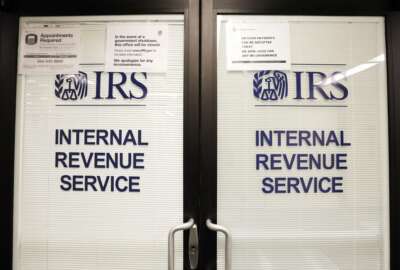
Resetting your retirement clock
Whether you are a plodder or a planner, foot-loose or up-tight, odds are your retirement checklist didn’t mention the possibility of a once-in-a-lifetime pandemic...
Whether you are a plodder or a planner, foot-loose or up-tight, odds are your retirement checklist didn’t mention the possibility of a once-in-a-lifetime pandemic that would knock the 11-year bull market to its knees, throw millions of American workers out of their jobs in a matter of days, and put the economy in a nose dive that might last longer than you will.
It didn’t include 24/7 news reports, mostly bad, nor feature mile-long auto caravans lining up for free food, or medical tests. Nor did it include nearly deserted streets, or supermarket shoppers wearing masks pushing baskets down one-way aisles looking for toilet paper while maintaining a 6-foot distance between everyone else.
This is one most of us, outside the science fiction world, didn’t see coming.
Many federal workers — while they still have steady jobs, paychecks and health insurance — who had planned to retire within the next five years, or move to the private sector, are now hitting the reset button. Feds who became Thrift Savings Plan millionaires via decades of investing in its stock-indexed funds have seen those accounts take a terrible hit. Earlier this year we talked to three people who were on track to have $2 million accounts by midyear. Not anymore.
So how are feds, who are among the luckier members of society, doing? We asked and you responded:
“About a year ago, I put all my TSP money into the G fund. The market doesn’t abhor a vacuum, it abhors instability. Instability has been the middle name of this administration. I didn’t want to suffer a big TSP loss and then feel that I needed to work another 20 years to earn it all back. Good move.
“I retired at the end of November with 33 years of service. I could have easily worked another five years. I enjoyed the work and liked the majority of the people I worked with. But my wife had retired from her federal job a number of years ago to support my career. It was getting selfish of me to keep working. Time to go.
“Now that I’m retired and looking at the economic carnage caused by the coronvirus, I’m so glad my wife and I had careers with the federal government. When I started as a fed in the mid-1980s, the big discussion was whether [the Federal Employees Retirement System] was better than [the Civil Service Retirement System]. I am FERS and my wife is CSRS. Honestely, as long as you contribute to your TSP, they’re both really good retirement programs. We are so grateful.
“My fear is that the benefits of federal employment are being unraveled. I hope federal employees and retirees understand the importance of fighting for what they have! That will become more important if the economy is poor for a long time and the feds get singled out more and more as living large while the rest of the nation suffers. The problem is that feds shouldn’t be unique, everybody should have some semblance of what we have in retirement if the nation is going to function properly.” — Anonymous
“Hi Mike, I always appreciate your articles and Wednesday’s Your Turn. I’m 60 [years old] with 33 years of service. I was planning on retiring Dec. 31, 2022, with whatever interest I could gain on my January 2020 TSP balance of $750,000. That’s not looking like a reasonable date for me now that my balance has dropped to $605,000 and the economic recovery is likely to be slow. Stay safe!” — Veterans Administration.
“I was thinking of retiring at the end of the year with slightly over 42.5 years of service completed. I will achieve maximum retirement pay in a couple of weeks so, in the current environment of uphill fights to get federal employees pay raises, severely reduced award funding, and the continued stranglehold on IRS’s budget, I thought it was as good a time to retire as any. But, with the arrival of the COVID-19 virus and the impact on IRS of the recent rounds of legislation, we are faced with a lot of work and already reduced resources that could be impacted even more by the virus itself so it’s looking like I probably will stay longer than planned.
“People keep wondering why there is no retirement tsunami. You’ve mentioned it a number of times. Part of it may be patriotism but, personally, I think it has somewhat to do with the same kind of bond that is formed in the military — my dad, recently deceased, was a Korean/Vietnam era Marine. You meet plenty of people during a career both good and bad but, if you are in a good cohesive group like I have been fortunate to be over my career, you bond with your fellow ‘inmates’ after all the stressful situations that you have survived together. So, it makes it kind of tough to decide to chuck it all and retire. Even if you feel that the environment makes it the right time to retire, you still have to deal with the sense that you are leaving your coworkers behind and possibly in the lurch.
“It obviously is not the same thing but, in a way, it is kind of like the wounded Marine/soldier who wants to get patched up as quickly as he can so he can return to fight alongside his unit because he feels he is letting them down. I’m sure that statement would raise some eyebrows for being an exaggeration but that’s at least how I feel about it.
“So, I’ll delay my plans, see how things develop, try to get my group on an even keel after the past few years of stressful times dealing with tax reform and now the virus situation, and hopefully we’ll all have a working vaccine in about a year so I can figure out what I’m going to do then. Thanks, keep doing what you’re doing, and stay safe!” — Dave at the IRS
Nearly Useless Factoid
By Amelia Brust
May 7 is the birthday of Mary Elizabeth Mahoney, the second African-American and the first African-American woman to study and work as a professionally trained nurse in the U.S. She cofounded the National Association of Colored Graduate Nurses in 1908, which merged with the American Nurses Association in 1951 – the latter of which still gives the Mary Mahoney Award biennially in recognition of significant contributions in advancing equal opportunities in nursing for members of minority groups.
Source: Wikipedia
Copyright © 2025 Federal News Network. All rights reserved. This website is not intended for users located within the European Economic Area.
Mike Causey is senior correspondent for Federal News Network and writes his daily Federal Report column on federal employees’ pay, benefits and retirement.
Follow @mcauseyWFED




